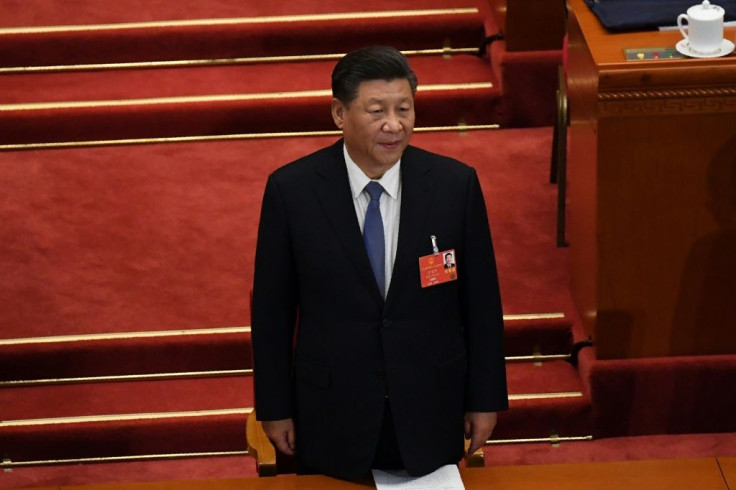China Detains Professor Who Criticised Xi Over Coronavirus

Chinese authorities on Monday detained a law professor who published essays criticising President Xi Jinping over the coronavirus pandemic and accusing him of ruling "tyrannically", according to friends of the man.
Xu Zhangrun, a rare outspoken critic of the government in China's heavily censored academia, was taken from his home in suburban Beijing by more than 20 people, one of his friends said on condition of anonymity.
Xu published an essay in February blaming the culture of deception and censorship fostered by Xi for the spread of the coronavirus in China.
China's "leader system is itself destroying the structure of governance", Xu wrote in the essay that appeared on overseas websites, adding the chaos in the virus epicentre of Hubei province reflected systemic problems in the Chinese state.
China is "led by one man only, but this man is in the dark and rules tyrannically, with no method for governance, though he is skilled at playing with power, causing the entire country to suffer," Xu wrote.
He also predicted that an ongoing economic slowdown in China would cause "the decline of national confidence," along with "political and academic indignation and social atrophy."
The law professor at Tsinghua University, one of the country's top institutions, had previously spoken out against the 2018 abolition of presidential term limits in an essay circulated online.
A friend said on Monday a man claiming to be police had called Xu's wife -- who had been living separately at a university residence -- to say Xu was arrested for allegedly soliciting prostitution in the southwestern city of Chengdu.
Xu visited Chengdu last winter with a number of liberal Chinese scholars, although it is unclear if the arrest was connected to the trip, the friend said, calling the allegation "ridiculous and shameless".
Xu was placed under home arrest last week, the friend said.
After Tsinghua reportedly barred Xu from teaching and conducting research in 2019, hundreds of Tsinghua alumni -- and academics from around the world -- signed an online petition calling for him to be reinstated.
Tsinghua and public security authorities in Beijing did not respond immediately to requests for comment on Monday.
Freedom of expression in China has always been tightly controlled by the Communist Party, but that grip has become suffocating under Xi.
A Chinese court last year sentenced "cyber-dissident" Huang Qi, whose website reported on sensitive topics including human rights, to 12 years in prison for "leaking state secrets".
Space for independent discussion has shrunk further this year as Xi's government has sought to deflect blame for the coronavirus, which scientists believe emerged from a wild animal market in Wuhan.
Chen Jieren, a former journalist with Communist mouthpiece People's Daily, was convicted in May of "picking quarrels and provoking trouble" and for posting "false" and "negative" information.
Ren Zhiqiang, an outspoken Chinese Communist Party critic and millionaire property tycoon, was also detained after he penned an essay fiercely critical of Xi's response to the outbreak.
© Copyright AFP {{Year}}. All rights reserved.





















